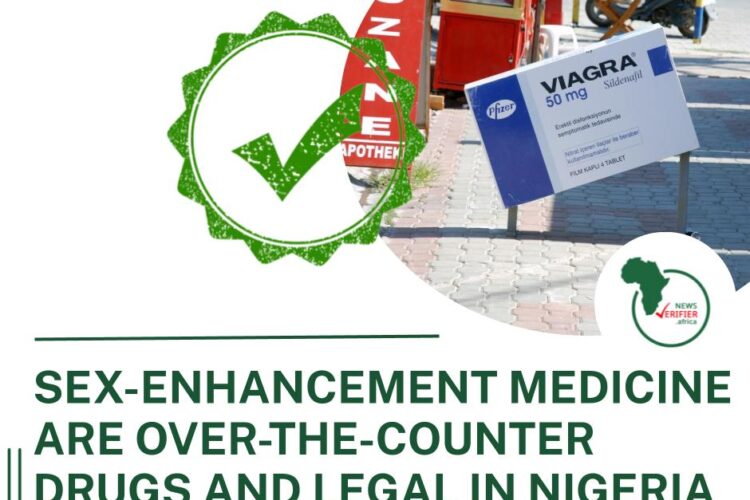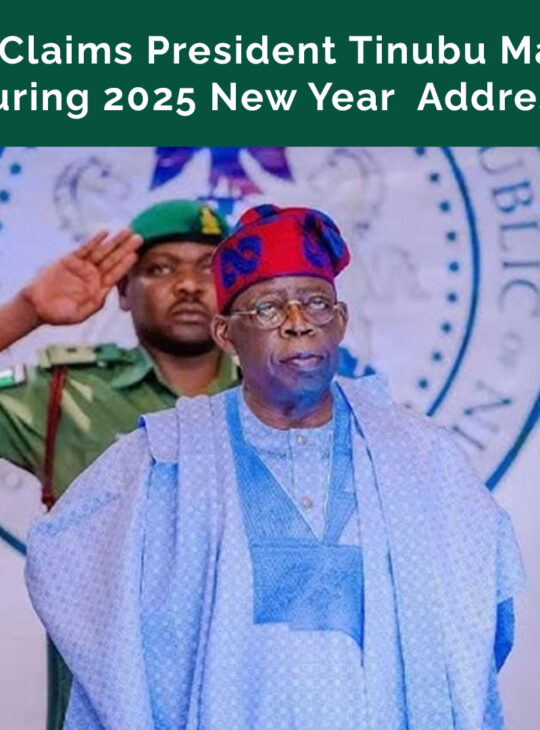Juliet Buna
On May 2, 2024, the Public Relations Officer of the Delta State Police Command, Bright Edafe, sparked controversy by stating on his official X handle that Viagra and other sex-enhancement drugs are classified as over-the-counter (OTC) medications.
Mr Edafe clarified that possessing these drugs is not an offence, leading to a heated debate among social media users. He wrote, “Viagra and some other sex enhancement drugs are over-the-counter drugs, and it’s not an offence to have it. We always enlighten our men but it’s important you know your right too.”
The post, which garnered over 39,000 views, 110 reposts, and 124 replies, elicited responses from users sharing their experiences.
One user, It’s well (@nwotasamuel) recounted an incident where a passenger in possession of Viagra was arrested along with other passengers on a bus. The user claimed that the police demanded a bribe before letting them go, highlighting alleged maltreatment by police officers.
He wrote, “I was in a bus some time ago along Abakaliki Enugu express, and your men stopped us, saw Viagra with a passenger, arrested him and the bus. Refused to take us to the station and refused to let us go for 3 hours. Eventually, the driver and the passenger contributed and paid them 5k.”
Another user, Rodin Burton {@RodinBurton) shared a similar experience of almost being arrested for having Viagra in their car. They detailed how police officers allegedly extorted money from them, threatening arrest if payment was not made. He wrote, “Sir, kindly call the police unit by the Agbaro/Okuokoko axis of the expressway. I was stopped while driving back home. Searched and found Viagra and Revive on me. Officers asked me for money or threatened to arrest me. They also used bare hands to touch the thistle of my toothbrush.”
Another user identified as Mazi Jasper (@MaziJasper__) wrote, “Una men collect 5k from me because of this.”
Contrary to Edafe’s assertion, some users argued that Viagra and sex enhancement drugs are not over-the-counter medications. A user with the handle Pharm (@Rxemmy2016) pointed out that Viagra is a prescription-only medication for patients with Erectile Dysfunction (ED), emphasising the potential risks of its misuse.
Amidst the debate, user Aibinuola (@YeyeOba002) simply stated, “Nope. Viagra is not OTC,” echoing the sentiment that these drugs require a doctor’s prescription for dispensation.
In response to the ongoing discussion, user Husayn Ifeanyi forchu (@forchu_ifeanyi) emphasised, “They are not over-the-counter drugs. These drugs need a doctor’s prescription before you get them,” underlining the regulatory framework surrounding the distribution of such medications.
The classification of Viagra and sex enhancement drugs remains a hot topic, raising questions about their accessibility and legal status in the community. N-VA spoke with experts to seek their views on the topic.
What is Erectile dysfunction and Over-the-counter (OTC) drugs?
Erectile dysfunction (ED), a condition characterised by the inability to get or maintain an erection long enough for sexual intercourse, affects millions of people globally.
It affects one’s ability to get and maintain an erection firm enough for sexual intercourse.
ED can result from various causes, including conditions affecting blood vessels, neurological and mental health conditions, and injuries. Medical researchers estimate that erectile dysfunction affects over 50% of people who identify as male between the ages of 40 and 70. And the numbers may be higher — many don’t seek help due to embarrassment or shame.

According to a 2023 report by Punch Newspapers, a staggering 65% of Nigerian men over 40 are at risk of developing ED.
Despite its prevalence, ED remains a sensitive topic, leading many men to seek solutions in medicines and herbs to improve their sexual performance.
One popular medication for ED is Viagra, a prescription drug containing sildenafil (also known as sildenafil citrate). According to Healthline, although, Viagra is widely used for treating erectile dysfunction, it may cause several unwanted side effects. Common side effects include sensitivity to light, muscle aches, heartburn, nosebleeds, flushed skin, insomnia, tingling or numbness in the limbs, headaches, diarrhoea, and trouble differentiating between colours. Users may also see a blue tinge on things.
However, the post by the PPRO of Delta State Police Command has raised questions about whether or not Viagra and other sex-enhancement drugs are over-counter drugs.
Expert speaks
A pharmacist, Mr Oridupa Moses, cautioned against the misuse of over-the-counter (OTC) drugs, particularly sex-enhancement medications.
He emphasised that while OTC drugs do not require a prescription, consulting a doctor or pharmacist is crucial to ensure safe usage.
Mr Moses noted that some individuals, including those with underlying medical conditions like hypertension, may be at risk of adverse effects or even death from using sex-enhancement drugs without medical supervision. He cited instances of individuals taking excessive doses, leading to heart attacks and other complications.
He said, “An over-the-counter (OTC) drug does not require a prescription to be purchased. Unlike prescription drugs, OTC drugs can be stored and sold without needing an order from a doctor. If someone feels they need a sex enhancement drug, they can obtain it without a doctor’s prescription. However, due to frequent misuse, some OTC drugs, including commonly used ones like paracetamol, often come with recommendations to consult a doctor before use.”
Shedding light on the legality of sex enhancement drugs in Nigeria, A legal practitioner, Barrister Akinola Yussuf, said that they are legal as long as they are used for consensual sexual purposes and comply with regulatory requirements.
According to Esq Yussuf, while some may consider them over-the-counter (OTC) drugs, Yussuf argues that this classification should depend on whose instruction or decision leads to their purchase.
The lawyer explained that OTC drugs are typically those that can be bought directly from a pharmacy without a doctor’s prescription, noting that sex enhancement drugs are not necessarily OTC drugs, as doctors often prescribe them to address specific sexual challenges. He said, “Over-the-counter drug is a drug without any doctor’s prescription wherein the consumer buys directly from a pharmacy. It is close to self-medication. On the other hand, sex enhancement drugs are drugs used when a person has sexual challenges like erectile dysfunction, quick ejaculation and so on. The question is: is sex a crime in Nigeria? So far it is consensual, it is legal.”
Another legal expert, Barrister Olusegun Akeredolu, also said that the possession and use of sex-enhancement drugs, including Viagra, are not illegal and do not warrant arrest by law enforcement agents.
Akeredolu explained that there are laws regulating the intake of drugs, and unless a drug is labelled as dangerous or prohibited, it is not illegal to use. He noted that there is an ongoing campaign to discourage the unreasonable use of sex-enhancement drugs, but possession alone is not a criminal offence.
He said, “Police or any other law enforcement agents will try to discourage people from using them unreasonably like any other drug there’s always a prescription to the use of drugs. Even water, there’s a prescription to it. The possession of Viagra and other sex-enhancement drugs is not illegal, and police cannot arrest people because of them.”
CONCLUSION
Experts affirm that possessing these medications is not a criminal offence, but the proper use and distribution of such drugs should be under prescription. Therefore, the claim that it is not an offence to possess sex-enhancement drugs is TRUE. However, the claim that sex-enhancement drugs are over-the-counter is only PARTIALLY TRUE, as experts advise that due to the potential side effects, these drugs should ideally be prescribed by a doctor.
The researcher produced this fact-check per the DUBAWA 2024 Kwame KariKari Fellowship, in partnership with Crest 91.1FM, Ibadan, and News Verifier Africa, to enrich the ethos of “truth” in journalism and enhance media literacy in the country.


